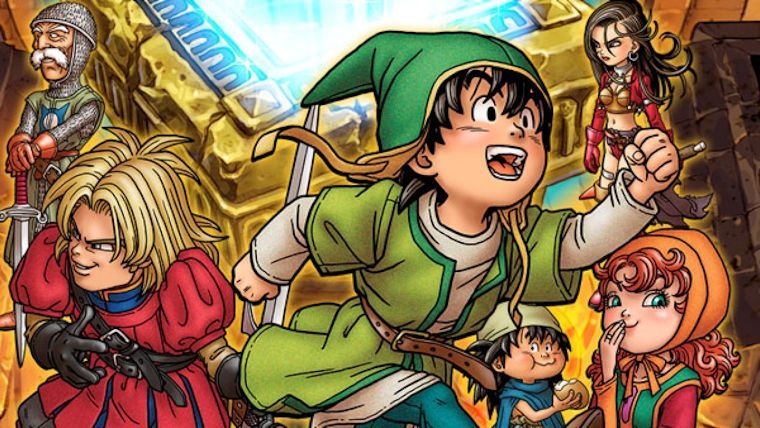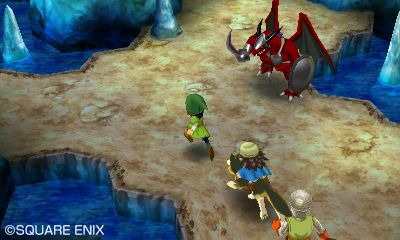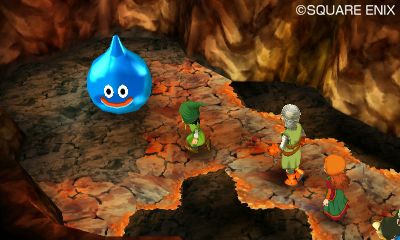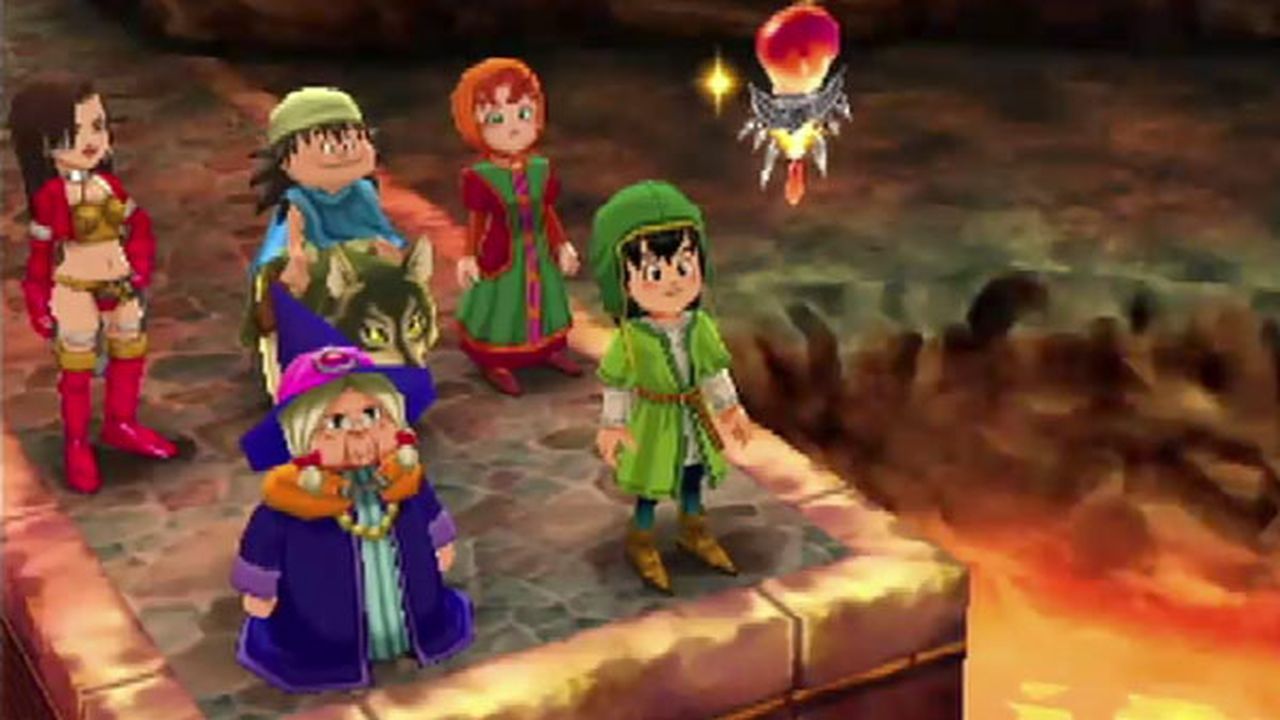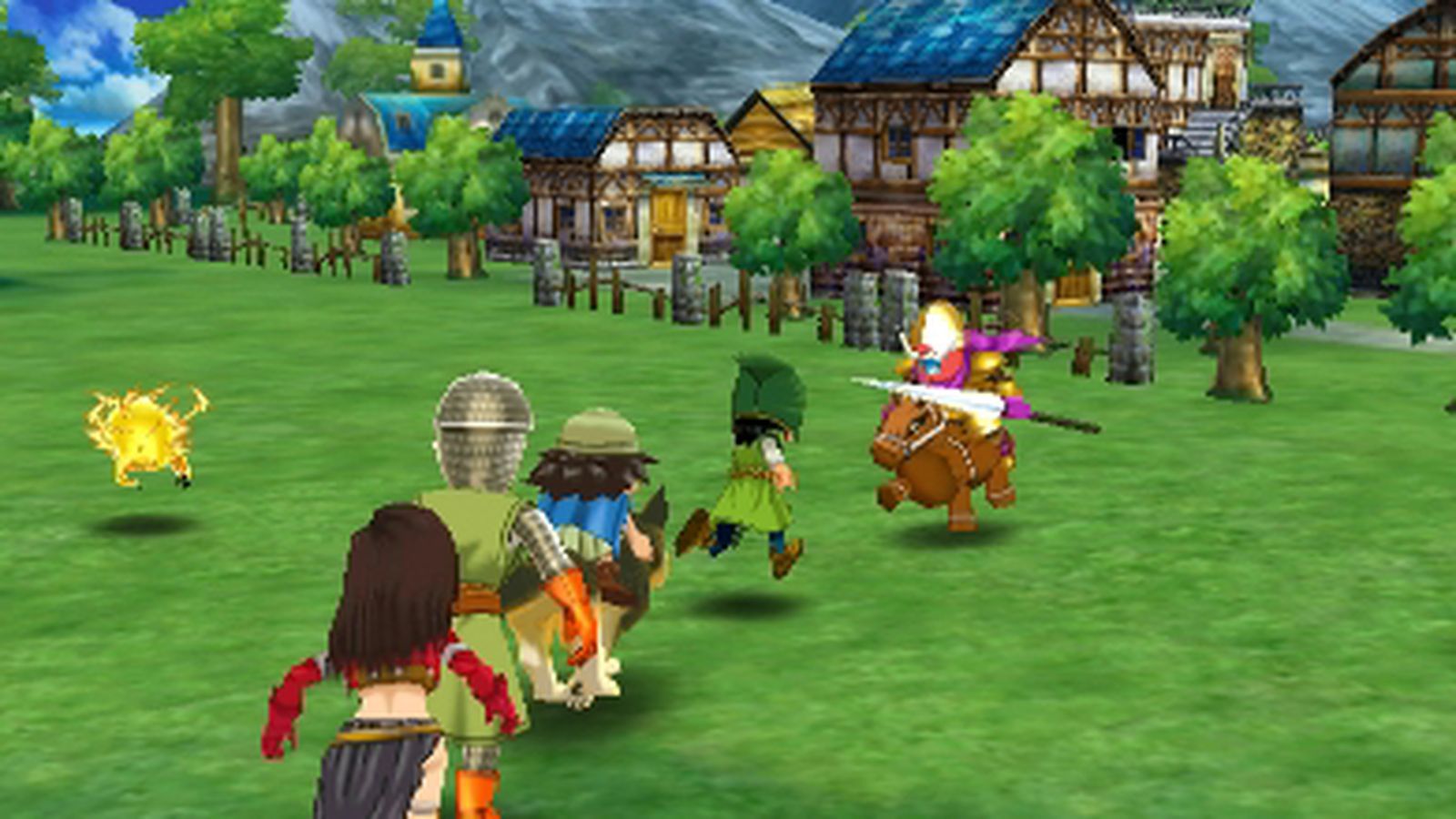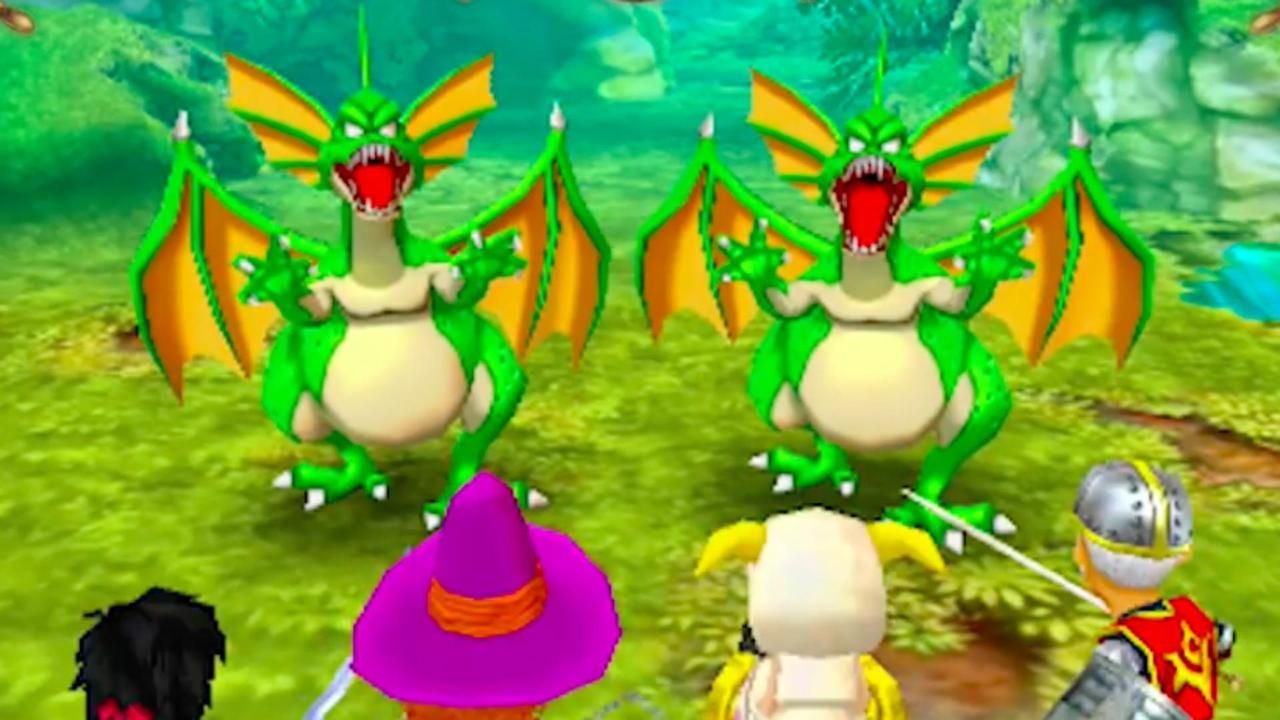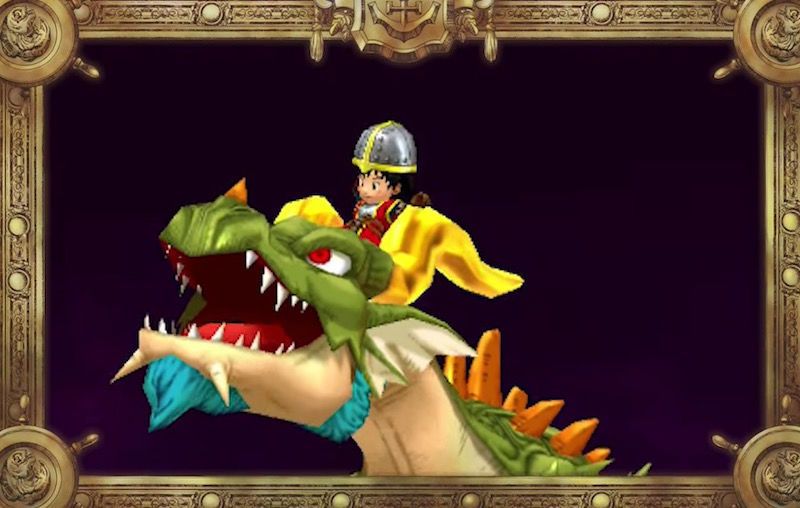Compared to the legions of JRPGs that have been brought over to Western territories and found their own audiences (from those that dive deep into Final Fantasy or have discovered Persona), the Dragon Quest (or Dragon Warrior) series has always been a bit under the radar when it comes to Western popularity.
While beloved in Japan, Dragon Quest's charming, colorful graphics have never led to the same kind of success that's been found with other titles. However, the series has still found a small (but dedicated) audience to continue warranting ports from Japan.
That takes us to the latest (re)release from the series with Dragon Quest VII: Fragments of the Forgotten Past, a revitalized version of the PSone original (released in the US in October 2001) that has been reworked in some ways and kept (mostly) the same for the Nintendo 3DS. While this 3DS version was released in Japan quite some time ago in 2013, Fragments of Forgotten Past's US release falls on the heels of the title's 15th anniversary ans is one of the best opportunities to play the exceptional RPG, despite some quirks that firmly plant the game in very traditional JRPG mechanics.
Originally released in the US as Dragon Warrior VII, the 3DS revival instead takes on the original Japanese name and adds a new subtitle -- one that's largely reflective of the experience playing a title that, in many ways, feels like a game ripped right from the past of a more traditional JRPG experience. This feels especially true for those that may have missed the chance to play a Dragon Quest title in the past.
Dragon Quest VII begins in the traditional way of the many games before it, where players take on the role of the nameless "Hero" and take part in an epic journey. With a band of new characters that join the fight such as powerful prince Kiefer, the magic-wielding Maribel, and more, the player and their party explore vast terrains and hop through islands and continents while on the search for the menacing Demon Lord to restore piece to the fragmented continents across the world.
The simple setup and clash between good vs. evil is certainly not unknown when it comes to JRPGs, and Dragon Quest VII makes no apologies for a story that, for the most part, makes no deviations by typical RPG standards. However, if there is anything it does make up for is its density and detail, as the title is a notoriously long one (often taking players well past 100 hours to finish one playthrough), and based on my 50-60+ hours with the game the end is far, far away from sight.
When it comes to meaty RPG experiences (especially on the 3DS) it will be hard to pass up what Dragon Quest VII has to offer. As someone that generally prefers playing JRPGs on handhelds as opposed to consoles, Dragon Quest VII's lengthy experience will certainly appeal to those looking to keep their thumbs occupied for many months, whether it's in short bursts while commuting or hours-long sessions on the couch. Likewise it may be an intimidating experience for those unfamiliar with the series or massive JRPGs of its kind.
However, like the many games before it, its epic length shouldn't be a deterrent from the warmth and charm that Dragon Quest titles have offered, with Fragments of the Forgotten Past being yet another great example of the series' colorful and cheerful tone. That tone has been preserved more than ever with the game's completely remade visuals that transition the original title's 2D, sprite-based visuals to a complete 3D world, one that acts as the perfect prequel to the gameplay that awaits in next year's remake of Dragon Quest VIII: Journey of the Cursed King for Western audiences.
As far as traditional JRPG experiences go, Dragon Quest is perhaps the series that most adheres to the idea of the traditional JRPG. With a band of characters that each feature their own class and set of abilities, Dragon Quest VII sets players off on a series of quests while traversing from town to town. Along the way and while traversing the (extensive) world map, players can obtain a variety of equipment and skill sets to customize their characters in tandem with the game's deep class system.
That last paragraph is one that can apply to many a JRPG, but Dragon Quest VII offers plenty to give veteran JRPG players that wish to dive into the title (whether for the first time or more). Its class system offers extensive flexibility in allowing players to customize their characters, whether it's in traditional classes like a warrior or mage, to more eccentric classes with more specific skillsets, depending on how players decide to build their characters.
Though many of Dragon Quest VII's mechanics and gameplay are set firmly in the past, the 3DS version of the title does make a few concessions to more modern tastes, the most obvious being the game's visual overhaul. From the original 2D, sprite-based artwork comes a fully-realized 3D take on the title that really accents the great character and monster designs from longtime series artist Akira Toriyama.
The 3DS has surely shown its age since it released five years ago, though Dragon Quest VII pops with colorful, vibrant visuals and shows off well, even on a system that's lacking hardware compared to smartphones or the PS Vita. That attention to detail in the remade DQVII shines even more with the lively character animations, and continues the tradition for Dragon Quest of a cheery JRPG world that makes it stand out from the pack.
Along with the updated visual polish and enhancements offered in the 3DS port, players can also take advantage of the system's other features like newly-included StreetPass features. Specifically, players can send and receive monsters that are befriended and can share various "fragments" with one another, allowing monsters to grow stronger and, in turn, unlock new dungeons with more powerful creatures for players to encounter on their journey. It's a feature that isn't introduced until later on in the title, but it's an appreciated (and clever) way to both integrate higher-leveled challenges and encourage players to carry the game with them on-the-go.
Much like its name, Dragon Quest VII: Fragments of the Forgotten Past is a title that stands with one foot very firmly planted in the past, and another just inside of the line between retro and modern games. Make no mistakes about it, Dragon Quest VII exemplifies what have made timeless JRPGs such classics with a battle system that's still fun and engaging, and a class system that's (still) probably deeper than many of its modern contemporaries.
That said, Dragon Quest VII's length and some of its more convoluted systems (such as the traditional save system inside churches that's very time-consuming and inconvenient) may be as much of a deterrent to those looking for titles that would probably be better suited to introducing players to the world of JRPGs.
However, for those with just a little bit of patience, Dragon Quest VII: Fragments of the Forgotten Past is an immensely rewarding title that will occupy you for many, many hours on end. It may take a while to get going, but those willing to hear its tale told will not be disappointed.

